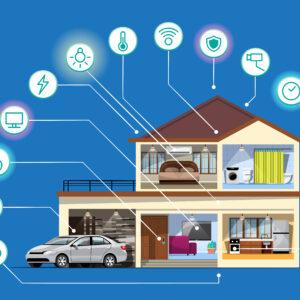Introduction
The concept of asset tokenization has been gaining traction in recent years, particularly in the world of real estate and other physical assets. Asset tokenization refers to the process of digitizing assets and representing them on a blockchain as tokens. These tokens can then be traded and transferred like any other cryptocurrency, unlocking new opportunities for investors and asset owners alike.
Real-world asset tokenization offered by asset tokenization companies has the potential to transform the way we think about investing in physical assets. By digitizing assets and creating tokens that represent ownership, asset owners can fractionalize their assets and sell shares to investors without the need for traditional intermediaries such as banks or brokers. Asset tokenization companies can significantly reduce the barriers to entry for investors and make it easier for them to access a wider range of investment opportunities.
One of the most significant benefits of real-world asset tokenization is increased liquidity. Traditional assets such as real estate or fine art can be difficult to sell and transfer, as they often require lengthy legal and regulatory processes. However, by tokenizing these assets, they can be traded quickly and easily on a blockchain, allowing for greater liquidity and more efficient capital markets.
Real-world asset tokenization also has the potential to reduce the costs associated with asset ownership and management. By tokenizing assets, owners can automate many of the administrative tasks associated with asset ownership, such as record-keeping, payments, and reporting. Asset tokenization companies can significantly reduce the costs associated with asset ownership and management, making it more accessible to a wider range of investors.
Another benefit of real-world asset tokenization is increased transparency and security. By digitizing assets and creating tokens on a blockchain, all transactions are recorded on an immutable ledger that can be accessed by anyone. This provides greater transparency and accountability, as all stakeholders can track the ownership and transfer of assets in real-time. Additionally, blockchain technology provides enhanced security, as the decentralized nature of the technology makes it more difficult for hackers to gain unauthorized access to the network.
Real-world asset tokenization has already been used in a number of different industries, with real estate being one of the most prominent. In the real estate industry, asset tokenization allows for fractional ownership of properties, making it easier for investors to participate in the market. This has the potential to unlock new investment opportunities and increase liquidity in the real estate market.
Art and collectibles are another area where real-world asset tokenization is being used. By digitizing artwork and creating tokens that represent ownership, art collectors can sell shares in their collections and provide investors with access to rare and valuable pieces that they may not otherwise be able to afford. Asset tokenization companies have the potential to democratize the art market and make it more accessible to a wider range of investors.
Real-world asset tokenization is not without its challenges, however. One of the biggest challenges is regulatory compliance, as the legal and regulatory frameworks around asset tokenization are still evolving. Additionally, there are concerns around security and custody of assets, as tokenized assets must be stored securely to prevent theft or loss.
Despite these challenges, real-world asset tokenization has the potential to unlock new opportunities for investors and asset owners alike. By digitizing assets and creating tokens that represent ownership, real-world assets can be made more accessible, liquid, and efficient. Asset tokenization companies have the potential to democratize the investment landscape and make it easier for investors to participate in a wider range of asset classes.
In conclusion, real-world asset tokenization is an exciting development that has the potential to transform the way we think about investing in physical assets. By digitizing assets and creating tokens that represent ownership, real-world assets can be made more accessible, liquid, and efficient. While there are still challenges to overcome, the potential benefits of real-world asset tokenization are significant, and we can expect to see continued growth and innovation in this area in the years to come.







